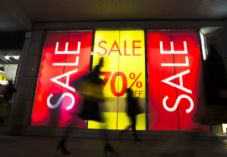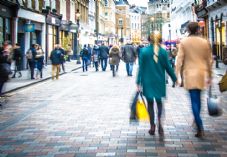UK DIY News
BRC: Retailers Must Empower Consumers To Become Net Zero
- BRC and PwC report provides a practical guide for retailers to drive Net Zero consumption
- Retailers must do more to inform and encourage their customers around low-carbon living
- There are many “Net Zero Heroes”, but reaching Net Zero relies on changing the behaviour of “Non-Ecos”
The retail industry – including product supply chains – is one of the largest contributors to UK greenhouse gas (GHG) emissions, with goods sold to consumers accounting for over 30% of all emissions. This gives the industry both a huge opportunity and huge responsibility to play its part in combatting climate change.
Helping customers to live lower carbon lifestyles and make more environmentally conscious choices when shopping is essential if the retail industry is to reach its goal of being Net Zero by 2040. To drive this forward, the British Retail Consortium (BRC) and PwC have produced a guide for retailers entitled “Helping Customers Live Low-Carbon Lifestyles”.
The guide identifies four customer types (see graphic below) and aims to support retailers in moving “Non-Ecos”, those who are not informed or engaged with low carbon living, and turning them into “Net Zero Heroes”, who care deeply about climate change and engage with ethical and sustainable brands wherever possible. This requires retailers to inform and persuade customers of the importance of a low carbon lifestyle, and how to achieve it.
The guide, which is freely available to all retailers, pulls together best practice for improving consumer behaviour, as well as looking at the barriers to change and how to overcome them. The best practice follows the lifecycle of a consumer’s buying decision:
- Engage - Educating consumers on how to live a low-carbon lifestyle, g., show benefits of low-carbon options, or competitions that encourage low-carbon living
- Buy - Ensuring consumers purchase low-carbon products and delivery, e.g., prominent positioning for low-carbon products, or promoting rental
- Use - Encourage consumers to use products in low-carbon ways, g., eco settings on products, or promoting the use of refill zones
- Dispose - Helping consumers dispose of products in a responsible manner, g., promoting repairs or creating second-hand markets for products
This guide is part of the BRC’s Climate Action Roadmap, which aims to ensure the Retail Industry and its supply chains are Net Zero by 2040. This is key to limiting global temperature rise to 1.5oC above pre-industrial levels. The importance of retail is clear, in 2017, the full lifecycle of the sector’s sold goods had a footprint of around 215 million tonnes of CO2-equivalent – 31% of all GHG emissions associated with UK consumption.
Helen Dickinson, Chief Executive of the British Retail Consortium, said:
“Climate change is the greatest threat we face as a society, and we as an industry have a duty to fight it. The products consumers buy from our stores account for nearly a third of each household’s carbon emissions. Our role helping consumers to make better choices will be crucial in delivering the UK’s Net Zero ambitions.
“The BRC is working closely with retailers; sharing some of the very best practices in the industry and using this to help and support others. By changing the behaviour of consumers, retailers can ensure we meet the Roadmap’s Net Zero ambition, driving the market to supply better low carbon products. We know customers want to do the right thing on climate change, but they need help to do so.”
Tom Beagent, Director, Sustainability and Climate Change at PwC, said;
"For the sector to reach net zero by 2040 sustainability needs to be at the very heart of a retailer's strategy, focusing on innovations that please consumers and are good for business while reducing emissions within the business and supply chain. Although eco-consumerism is clearly on the rise, we know that some consumer segments haven’t fully embraced sustainable shopping. Retailers have a pivotal role to play in helping these less environmentally conscious consumers access better information and make it easier for people to make low carbon choices. Ultimately all choices need to be net zero by 2040 to meet this target so the race is on to make this vision a reality. Retailers can be part of the climate solution by only offering desirable net zero products and services which can be used and disposed of as part of a net zero lifestyle."
Source : BRC
Insight provides a host of information I need on many of our company’s largest customers. I use this information regularly with my team, both at a local level as well as with our other international operations. It’s extremely useful when sharing market intelligence information with our corporate office.











































